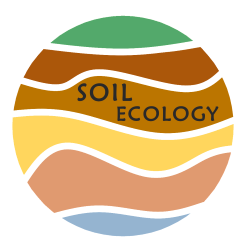| Spohn, M; Schleuss, P-M: Addition of inorganic phosphorus to soil leads to desorption of organic compounds and thus to increased soil respiration, Soil Biology and Biochemistry, 130, 220-226 (2019), doi:10.1016/j.soilbio.2018.12.018 | |
| Abstract: Addition of inorganic phosphorus (P) to soil has often been reported to cause increases in soil respiration, and this has been attributed to an alleviation of microbial P limitation. As an alternative explanation for this phenomenon, we tested the hypothesis that addition of inorganic P increases microbial respiration because added inorganic P exchanges with sorbed organic compounds in soil, and thus renders these organic compounds available for microbial decomposition. We conducted an experiment with 14C-labeled adenosine-monophosphate (AMP), and we determined the effect of inorganic P addition on dissolved organic carbon (DOC), dissolved DNA and soil respiration in the organic horizon and the A horizon of two beech forest soils with contrasting P stocks. We added inorganic P to the four soil horizons that contained trace amounts of 14C-AMP, and found that the emission of 14C-CO2 increased significantly due to P addition in all soil horizons by a factor of 1.4 to 4.0. Respiration rates increased significantly in all soil horizons by a factor 1.1 to 1.9 due to inorganic P addition. One hour after the addition of inorganic P, DOC concentrations were increased by a factor of 1.6 to 3.5 compared to the controls, and they were still similarly high seven days after the addition of inorganic P. Furthermore, concentrations of dissolved, extracellular DNA were also significantly increased in response to P addition. The 14C experiment shows that the addition of inorganic P led to increased microbial metabolization of a compound that strongly sorbs to the soil solid phase and suggests that the source of the additionally respired C is dead organic matter that desorbs upon inorganic P addition. The extraction experiments show that addition of inorganic P led to elevated DOC concentrations. In conclusion, our study supports the hypothesis that the addition of inorganic P increases microbial respiration because added inorganic P exchanges with sorbed organic compounds in soil, and thus turns these compounds available for microbial decomposition. The results indicate that microbial respiration was increased in response to P addition not because microbial P limitation was alleviated but because microbial C limitation was alleviated by desorbed organic C. |

